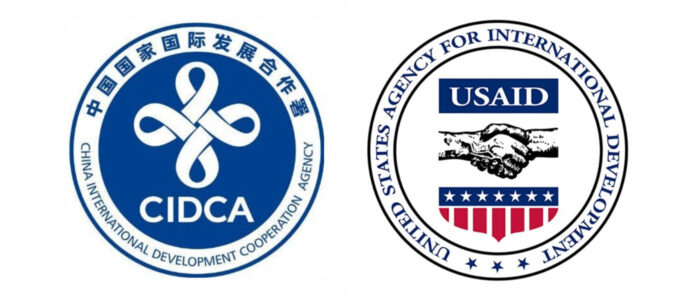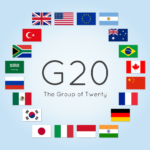Summary & Additional Remarks by Geopolist | Istanbul Center for Geopolitics:
The sudden closing of the U.S. Agency for International Development (USAID) has spurred discussions on whether China will increase its soft power projection towards the Global South. Reportedly inspired by billionaire Elon Musk, U.S. President Donald Trump revealed earlier this month the agency’s closure as part of a broad cost-cutting program. This decision led to the suspension of USAID’s website, the furlough of hundreds of senior staff members, and widespread uncertainty over ongoing aid programs and grants. Although a federal judge has temporarily halted the shutdown, the agency’s future remains precarious.
For over six decades, USAID has been a pillar of American foreign policy, shaping U.S. influence across the developing world. Established in 1961 by President John F. Kennedy, the agency was designed to counter Soviet influence during the Cold War and has since allocated billions of dollars to initiatives in healthcare, education, infrastructure, and human rights across Africa, Latin America, the Middle East, and Asia. USAID has also been rather important in recent years in helping to offset China’s growing worldwide influence. With its abrupt fall-off, concerns about Beijing filling in the void left by Washington have surfaced.
Beijing has avoided official comments on the events in Washington, but numerous Chinese officials in the domains of international aid, trade, and economics privately indicate that USAID’s departure could open the path for China’s increasing influence. They contend that the U.S. withdrawal will inevitably draw attention from all around the world toward Beijing’s foreign aid initiatives, therefore enhancing China’s profile as a major development partner. Some say that the lack of U.S. assistance will present chances for Chinese state-owned businesses to increase their economic presence and confirm Beijing’s geopolitical impact in important areas.
Established in 2018 to unite and simplify China’s foreign aid policies, the China International Development Cooperation Agency (CIDCA) guides most of China’s foreign aid program. Designed partly in line with USAID, CIDCA was established to better manage China’s worldwide aid activities by grouping its development projects under one unified body. Supporting President Xi Jinping’s Belt and Road Initiative (BRI), a multi-trillion-dollar infrastructure and investment scheme meant to increase China’s presence in developing countries, the agency is absolutely vital. Indirectly addressing the matter in a recent interview with Phoenix TV, CIDCA Vice-Chairman Hu Zhangliang compared China’s stance with that of the United States Beijing will not, he underlined, left aid recipients “helpless, caught off guard, or unprepared” by suddenly withdrawing support. His comments strengthened China’s story—that its development aid is more consistent and reliable than that of Western countries.
Despite the prospect of expanded Chinese influence, some Chinese officials caution against overstating the shift. A commerce official noted that many developing nations remain hesitant to fully align with Beijing, preferring instead to balance their relationships between China and the United States. While China’s global presence has undoubtedly grown, it still does not match the historical reach of American soft power. Many aid-dependent nations, particularly in Africa and Asia, are likely to continue hedging their alliances rather than committing exclusively to either superpower.
Beyond the geopolitical conflict, USAID’s closing begs more general questions about the direction of foreign development aid. Longstanding humanitarian relief provider, the agency has been instrumental in providing basic amenities to some of the most underprivileged populations throughout the globe. The abrupt cancellation of its initiatives runs the danger of upsetting important sectors including education and healthcare, in areas mostly dependent on American help. China might definitely intervene if the U.S. government neglects to revive USAID or create another system for providing foreign aid. Beijing’s strategy, which emphasizes infrastructural and economic growth over humanitarian and democratic governance initiatives, is probably different in scope and execution, though.
This change emphasizes the changing character of world development aid as well as the more general geopolitical realignment in progress. Policymakers in the United States, particularly Senator Chris Coons, have denounced the destruction of USAID as a strategic error providing China an unqualified edge. Beijing itself is still wary, though, knowing that its influence, while rising, is not yet on par with that of Washington. Chinese authorities see the chance given by America’s retreat but also understand the difficulties in projecting long-lasting worldwide influence.
The way China uses this opportunity and if the US adjusts its foreign aid policy will determine the balance of soft power in the Global South in the next years. Many underdeveloped countries may be driven to diversify their sources of foreign aid by the unknown future of USAID, therefore ensuring they are not unduly dependent on any one contributor. China stands to gain from the circumstances, but the geopolitical scene is always changing and the long-term effects of USAID’s closing are yet unknown.







